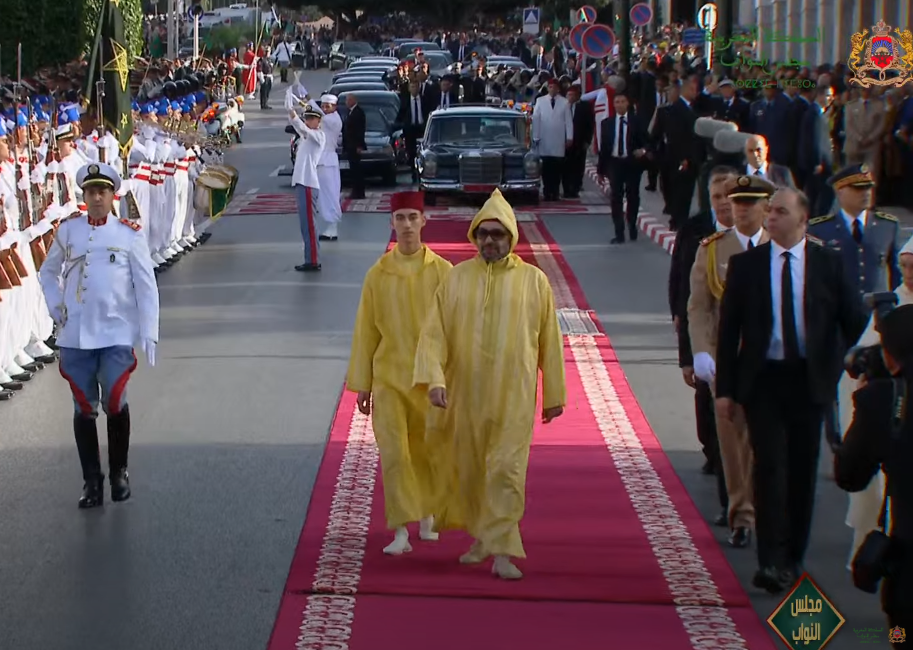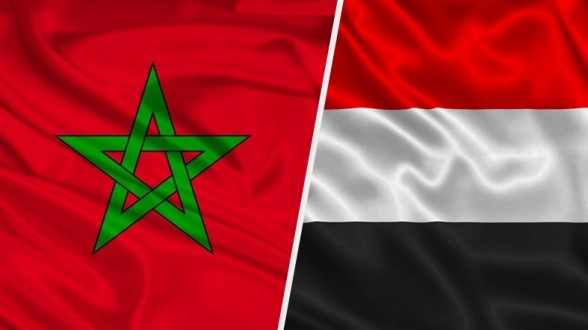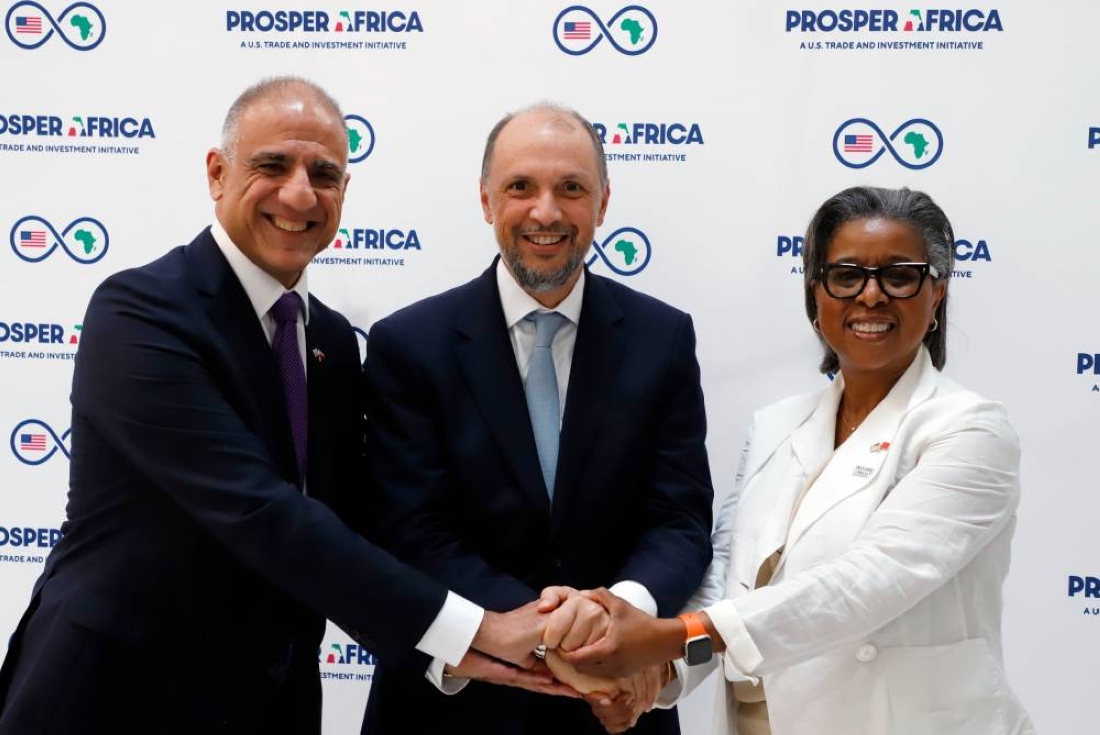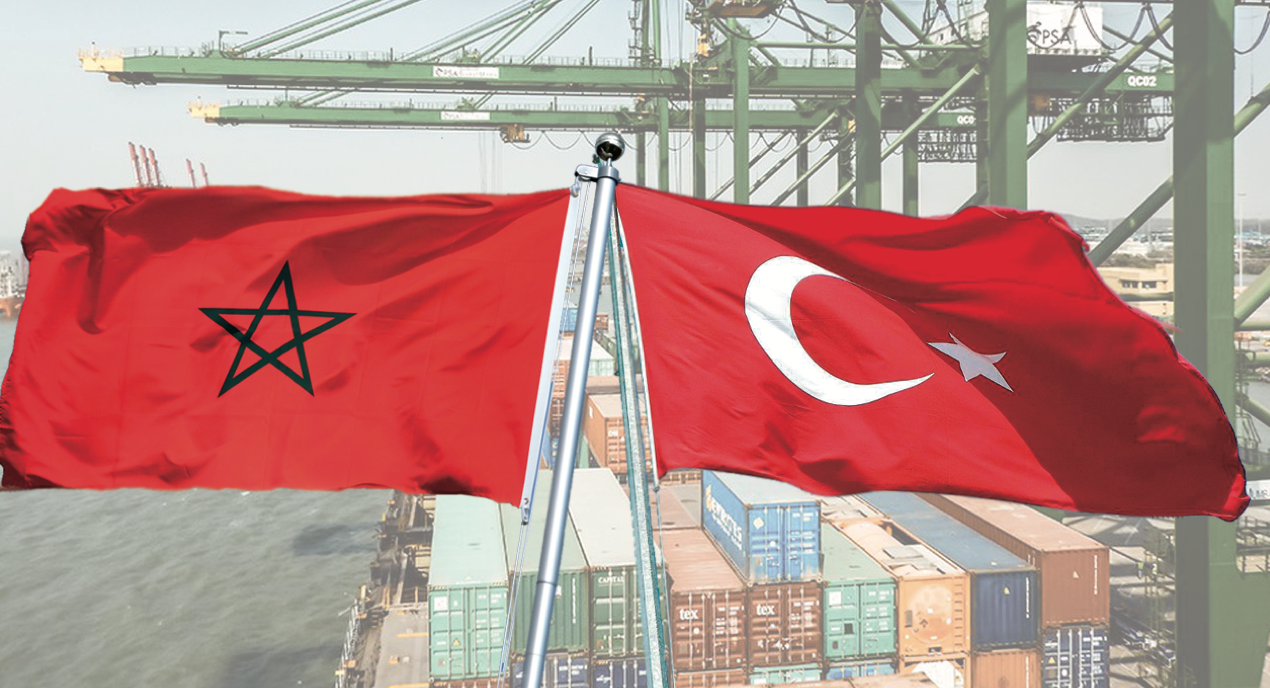King Mohammed VI has lauded the resilience and the values of solidarity & social cohesion shown by Moroccans of all walks of life following the earthquake that struck Morocco on Sept.08.
In a speech delivered Friday at the opening of the fall session of the Parliament, which was attended by President of World Bank Group Ajay Banga, and General Director of the International Monetary Fund Kristalina Georgieva, the Monarch said “this tragedy has shown that authentic Moroccan values have prevailed. They have enabled our country to overcome adversity and crises, again making us not only stronger, but also more determined to forge ahead, with unwavering confidence and optimism.”
This spirit and values are ingrained in Moroccans DNA. “We see them as the cornerstone of our unity and of the cohesion of Moroccan society,” added the Monarch, noting that these rallying national values are enshrined in the Kingdom’s Constitution. They apply to and are embodied by all the components of our authentic Moroccan identity and are also fully in line with universal values.
These values form the bedrock of our unified national identity, underlined the King, citing in this regard the Moroccans’ values of Maliki Sunni Islam, based on the Commandership of the Faithful and advocate moderation, openness to others, tolerance and inter-faith, intercultural coexistence.
“This is what makes Morocco a model of coexistence between Moroccans, Muslims, and Jews alike. Ours is a country in which other faiths and cultures are duly respected,” explained the Monarch.
He also cited the national values underpinning the Moroccan nation, and which are based on the monarchy. The latter is unanimously supported by all Moroccans; it brings together all components of the Moroccan people. Its pillar is the strong cohesion and the mutual allegiance – Bei’a – between the throne and the people.
“Love of the homeland and unanimity on the nation’s unity and territorial integrity are among Morocco’s long-standing, immutable values which unite Moroccans, and which bring together all the constitutive components of our rich, diverse, yet unified identity,” underlined the King.
He went on to say that the values of solidarity and social cohesion between groups, generations, and regions; this makes Moroccan society closely-knit, with different segments supporting and reinforcing one another.
“We call for continued adherence to these values because they consolidate our national unity and family cohesion; they also preserve human dignity and enhance social justice”, said the King.
In line with the spirit of these national values, which deem the family and family bonds to be sacred, the Monarch said he addressed a letter to the Head of Government asking for a review of the Family Code as the family is the pillar of society.
“Society will not function properly if the family is not cohesive or is imbalanced. Family disintegration makes societies lose their moral compass,” said the King.
Therefore, “I have been working to enhance our identity through major projects. Among these is the large-scale social protection project, which I consider a pillar of our social and development model,” affirmed the King, saying that Morocco will begin the implementation of the program for the provision direct social assistance at the end of this year.
To give concrete substance to the values of social solidarity, which are deeply ingrained in Moroccans, “I have decided that this program should not be limited to the payment of family allowances. I have made sure it also includes some social segments that need support,” underlined the Moroccan Sovereign.
This assistance will concern school-age children as well as children with disabilities, newborn babies, and also impoverished and vulnerable families without school-age children, especially those supporting elderly people, he explained.
Thanks to its direct impact, this program will contribute to raising the standard of living of target families and will help fight poverty and vulnerability, in addition to improving social and human development indicators.
“Society is more productive and proactive when it is deeply committed to solidarity. It also becomes more resilient to contingences and fluctuations,” said the King, calling on the government to adopt a comprehensive approach for the implementation of this program, in keeping with the principles of the framework law on social protection adopted by Parliament.
This program will be implemented in a gradual manner, taking into account the funds allocated, the optimal scope of the coverage, the amounts to be disbursed and how the assistance is to be managed.
“It should also be a model of successful implementation, based on the system for targeting beneficiaries under the unified social registry, making sure modern technology is properly leveraged”, said the King, stressing the need to uphold the principles of solidarity, transparency and equity, and to provide assistance to those who deserve it.
He also urged the government to give priority to the rationalization of current social benefit schemes and ensure their effectiveness as well as the sustainability of their financing.
The King stressed the need to uphold the principles of good governance for the implementation of this project with the setting up of a special monitoring and evaluation mechanism for the project’s continuous development and evaluation.



